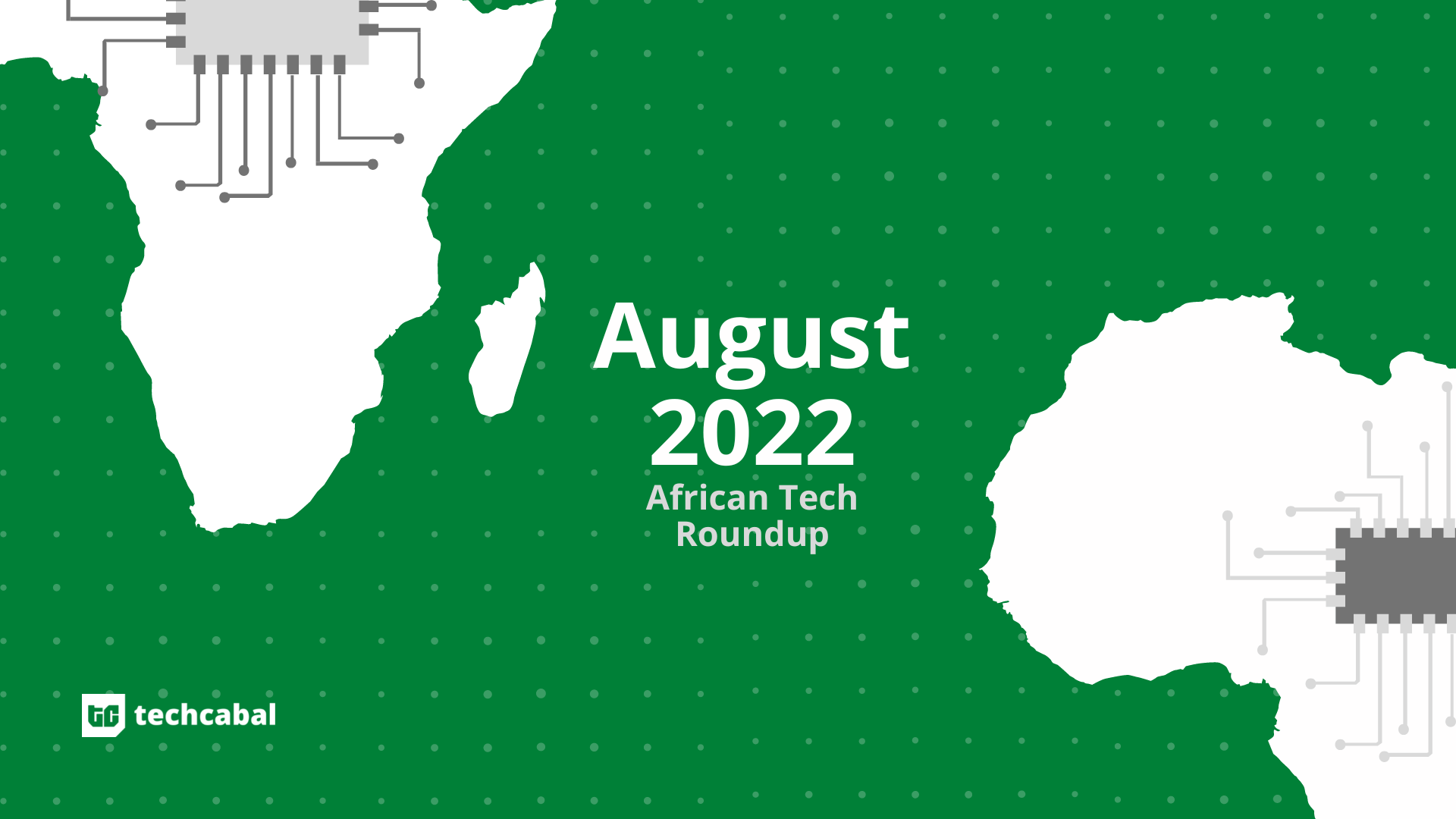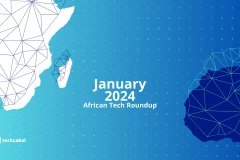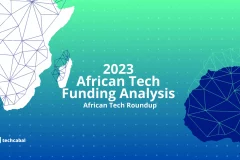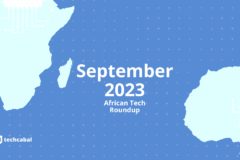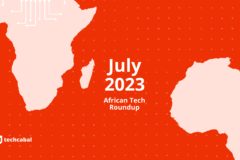August brought the lowest funding announcements of the year so far for African startups.
Last month, Kenya and South Africa also took significant moves to institute coding as a subject to be taught in schools.
Here’s more about the leading African tech moves from August.
1. FUNDING: EGYPT LEADS WITH TOP DEALS
In August 2022, African startups made 38 fully disclosed* raises totalling $218,000,000. So far, this total is the lowest amount raised in a month by African startups, a 9.06% decrease from July’s $239,706,000.
Per sector, the top three sectors in August are fintech, e-commerce/retail, and logistics. Fintech startups raised $91,000,000 (41.7%), e-commerce/retail startups raised $79,500,000 (36.5%), and logistics startups raised $21,600,000 (9.9%).
Per region, West Africa led with $91,000,000 of the funding, with fintech TeamApt’s $50 million raise at the helm. North Africa came a close second with $88,000,000, while startups headquartered in East Africa brought in $25,400,000. South Africa brought in the lowest funding from August with $13,600,000 in disclosed funding.
The top five disclosed deals of August 2022 are:
- Nigerian fintech TeamApt’s $50 million pre-Series C raise.
- Egyptian adtech ArabAds $30 million pre-Series B raise.
- Egyptian fintech Homzmart’s $23 million pre-Series B raise.
- Egyptian mobility startup Swvl’s $20 million raise.
- Nigerian retail startup Omnibiz’s $15 million pre-Series A raise.
Note: This data compiles only funding deals announced in August 2022. Raises are often announced later than when the deals are actually made.
This data is exclusive of estimated grants from accelerators like Techstars or Y Combinator.
2. MTN LAUNCHES 5G IN NIGERIA
In August, MTN Nigeria became the first telecommunication provider in Nigeria to roll out the 5G mobile network.
MTN commenced the roll-out by switching on the network in 190 sites across the country. The network is available in different sites across Nigeria’s major cities including Lagos, Abuja, Enugu, Port Harcourt, and Kano.
By October, it is expected that the 5G service will be operating in 500–600 sites across the country.
3. KENYA TO TEACH CODING IN SCHOOLS
Last month, Kenya became the first African country to institute coding as a subject for students.
As part of the country’s National Digital Master Plan, president Uhuru Kenyatta announced the addition of coding as a subject into its primary and secondary schools curriculum.
Meanwhile, South Africa is planning the establishment of an AI institute which will help teach robotics and coding in public schools.
4. EQUIANO LANDS IN SOUTH AFRICA
Four months after it first landed in Togo, Google’s first African subsea internet cable has completed its trip and landed in South Africa.
Equiano snaked its way through Togo, Nigeria, and Namibia, and finally landed in Melkbosstrand, north of Cape Town in August.
5. FLUTTERWAVE INDICTED IN KENYA, RECEIVES LICENSE IN NIGERIA, AND PREPARES FOR IPO
Fintech unicorn Flutterwave faced and overcame some hurdles in August.
In yet another fraud allegation in Kenya, the Asset Recovery Agency (ARA) received a court order to freeze Kshs 6 million ($3.3 million) in three bank accounts belonging to Flutterwave.
Meanwhile, in Nigeria, the fintech secured a Switching and Processing Licence from the Central Bank of Nigeria (CBN) which will allow it offer new services such as transaction switching, card processing, non-bank acquiring, agency banking and payment gateway services.
The company is preparing for an initial public offering on the Nasdaq stock exchange, the second largest stock exchange in the world.
6. LAYOFFS CONTINUE INTO AUGUST
So far, over six African startups have laid staff off following the global economic downturn.
In August, at least four African startups were revealed to have quietly laid off staff: 54gene, Alerzo, Marketforce, and Viamo.
Earlier in the month, Kenyan B2B platform MarketForce was revealed to have laid off 9% of its 600 staff—about 54 people—off in July due to a change in strategy.
Later, Nigerian genomic startup 54gene also laid off some contract staff while Alerzo, a Nigerian services platform, reportedly sacked 100 workers.
Finally, Viamo, a Ghana-based social and technology company, reportedly laid off an unknown number of employees according to an anonymous source from inside the company.
Other tech startups like Eden Life, GetEquity and Quidax are resorting to salary cuts to deal with funding winter. So far, about 76,000 employees have been laid off across 588 startups globally.
7. GOOGLE WALLET LAUNCHES IN SOUTH AFRICA
August also saw South Africa become the first African country to support Google Wallet.
Recently rebranded from Google Pay, Google Wallet is a mobile payment system that acts as a virtual wallet, allowing users to make payments and transfer money straight from their Android phones and smartwatches.
Google is collaborating with six South African banks—Absa, Discovery Bank, FirstRand (FNB and RMB), Investec, Nedbank, and Standard Bank—to provide this service.
8. BOLT SCALES DOWN OPERATIONS IN TANZANIA
In Tanzania, ride-hailing platforms had a tough ride in August, the fourth month of the implementation of an order by Tanzania’s Land Transport Regulatory Authority (LATRA) which mandates all ride-hailing operators to collect a maximum of 15% commission from drivers.
Uber had earlier suspended its operations in the country in April—when the order was initially enforced.
In August, Bolt restricted its business activities to corporate clients only, stating that a 15% commission fee was not sustainable for its operations in Tanzania.
9. RUTO WINS KENYAN ELECTIONS AMID RIGGING ALLEGATIONS
Kenya’s presidential elections also kicked off and were concluded in August, with UDA’s William Ruto winning against former prime minister Ralia Odinga with 50.5% of the total votes.
The elections, which marked one of the few electronically collated elections on the continent, are however far from over.
Odinga and his running mate Martha Karua have filed petitions asking the supreme court in Nairobi to annul the results on claims of rigging and hacking. The 45–page affidavit also accuses IEBC Chairman Wafula Chebukati of doctoring electronic forms used in tabulating results.
10. TANZANIA PREPARES TO LAUNCH SILICON VALLEY-LIKE HUB IN ZANZIBAR
Tanzania is set to build its own Silicon Valley—Silicon Zanzibar.
In August, the Tanzanian government launched the Silicon Zanzibar initiative to make the country a home for companies creating technology for use in Africa. The government will offer strong incentives like exemption from corporate income tax for 10 years to incentivise companies to participate in Zanzibar’s existing Free Economic Zone program. It will also streamline the issuance of work visas to skilled tech workers to incentivise their relocations from across Africa.
11. DRC RULES SANGO COIN BENEFITS UNCONSTITUTIONAL
In August, the Central African Republic (CAR) Constitutional Court declared that any purchase of citizenship, e-residency or land with its recently launched sango coin is unconstitutional.
Holding $60,000 worth of sango coin for 5 years would get buyers CAR citizenship; holding $6,000 worth of it gets buyers e-residency, and owning $10,000 gets buyers plots of land.
All this, according to the CAR Constitutional Court, is unconstitutional, as the CAR’s nationality has “no market value”.
Note: This list is no particular order.
If you enjoyed this article, please share it with your network on Twitter, WhatsApp, LinkedIn, Facebook, and Telegram.







